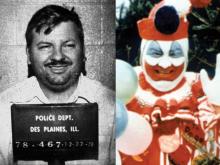Jan. 23, 2012

Jack Henry Abbott
Jack Abbott sold himself to Norman Mailer as the “Super Convict.” Mailer turned the letters Abbott sent him into the best-selling book, In the Belly of the Beast, and assisted Abbott in gaining parole in 1981. Six months later Abbott stabbed a waiter to death in a New York restaurant.
by J.J. Maloney
Jack Henry Abbott started as a boy in a training school, worked his way up through the system-—getting in trouble here, being transferred there, getting into more trouble until, ultimately, he spent virtually all of his life in some form of reform school or prison.
When it became known in 1977 that Norman Mailer was to write The Executioner's Song, about Gary Gilmore, Abbott, who was incarcerated in the same Utah penitentiary, wrote to Mailer, suggesting that Mailer could make use of the observations of someone like Abbott, someone who had lived in the world Gary Gilmore inhabited.
Mailer began to correspond with Abbott, and apparently began to care about him. Abbott wrote long, grandiloquent letters, in which he discussed his fantasized perception of himself as a Super Convict. He claimed to have been subjected to more brutality than other convicts, to have risen higher above the situation than other convicts, to have been more philosophically correct than other convicts.
Mailer bought it; for his own reasons, he wanted to believe what Abbott was saying. And, of course, there was some truth in many of the things Abbott said about prisons.
In any event, Mailer took those letters, edited them, and arranged to have them published under the title, In the Belly of the Beast, which was published to wide acclaim in 1981. Mailer wrote a lengthy introduction to the book, and it was lionized in many quarters-—particularly those quarters that are prone to lionizing Norman Mailer.
 |
| In the Belly of the Beast |
Six months prior to the book’s publication, Abbott, with Mailer’s support, was paroled from prison. The day the book received a rave review from The New York Times, Jack Abbott stabbed waiter Richard Adam to death in Greenwich Village. He fled to Louisiana before being arrested. In 1982, he was convicted of manslaughter and sentenced to 15 years to life in prison.
The same press that had lionized the book then turned on Mailer with a fury. He was savaged, and it was suggested more than once that he was as much to blame for the death of Richard Adan as Abbott.
In truth, Mailer was guilty only of naiveté, and that was never much of a crime. If anything, we link naiveté with innocence, and innocence of mind is something we cherish in other circumstances.
Norman Mailer made a good scapegoat. He had a known fascination with murderers; in 1958 he had stabbed his own wife after a party. Those writers awed by Mailer's presence looming over Abbott's shoulder – to the point where they had abandoned their own critical objectivity – now felt betrayed. They lashed out at Mailer because they lacked the courage to admit they had accepted Abbott as a significant writer because Norman Mailer said he was significant.
In the furor that resulted, Abbott was presented to the public not only as a convict author, but as a preeminent convict author; the conclusion to be drawn, of course, was that his murderous impulses demonstrated the futility of thinking any ex-convict could be trusted, particularly if that ex-convict had ever been convicted of a violent crime as Abbott had been in the murder of a fellow prisoner in 1965.
Lost in all of this is the single consideration no one ever raised: Is Jack Abbott a writer?
Prior to the correspondence between Mailer and Abbott, there's no indication that he had ever written anything other than letters home.
In fact, we do not know how much editing Mailer did before the letters were offered for publication. If Abbott were a writer with professional skills, why couldn't he edit his own letters?
Most likely, Mailer edited out those portions of the letters he considered without merit, which means the letters that were finally printed represent the best of what Norman Mailer felt Jack Abbott had to say. Even at that, the picture we get is of a deeply disturbed man whose perceptions are warped, whose conclusions cannot withstand close examination, and whose tone is almost entirely self-serving and self-aggrandizing.
The most Abbott could have shown at that point was promise, and the correct thing for Mailer to have done would have been to encourage him to develop that promise.
The process of becoming a writer is a journey. It necessarily includes self-examination of not only the world around you but of one's ideas and beliefs. It is not enough to say that someone has a facility with words. A writer is a whole person; he combines a facility with words and an ability to see correctly, or at least uniquely. Powers of observation are central to the development of a writer, and Abbott plainly lacks those powers.
If what was published was essentially Abbott's own writing, then you would have to agree that he showed promise. Given time, he might have developed that promise. To simply take his letters, polish them and have them published, was in many ways a cruel thing to do to him.
After the stabbing, some of Abbott's friends said he had been worried over what the future held. What would he do next? Did he have it in him to produce another book? Would he stand revealed as a literary freak?
Certainly he could not expect Norman Mailer to spend more time polishing additional letters from Jack Abbott. Moreover, following publication of the book and the murder, Abbot's Super Convict fantasy began to unravel. First, he was accused of having been a stool pigeon in prison; efforts on his part to document some of his claims proved futile. The many years he spent in solitary confinement might support the stool-pigeon accusation; men who are afraid of prison often do things that force officials to keep them in solitary virtually all of the time.
Quite a few convicts spend two to five years in solitary in their lifetime, but the ones who spend eight, 10, or more years tend to be so mentally unbalanced they can't figure out how the prison works. They often have some reason for wanting to be in solitary, and the most obvious reason is fear.
Jean Genet was a punk and a stool pigeon; he was also a writer of international stature. Genet was an accurate chronicler of the prison world he inhabited. He had intellectual honesty. Above all, he was a writer, and writers often not only have the ability, but the desire to rise above themselves.
Had Abbott been treated as a writer, rather than as a phenomenon, he could have been encouraged to improve and develop what appeared to be talent. Mailer could have continued to correspond, to challenge Abbott's analyses of himself and the world, to encourage him to go beyond the demagoguery of politics, to inspire him to develop his sensibility. In the end, Abbott was not so much discovered as exploited. Mailer, and others who wanted to make a statement about the deplorable condition of American prisons, used Abbott as a vehicle to do just that.
Editor’s Note: On February 2, 2002, Abbott was found dead in his cell, hanging from bed sheets, tied with shoelaces. Normal Mailer died of acute renal failure in 2007 at age 84.








